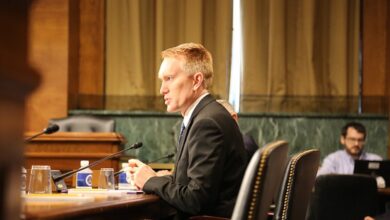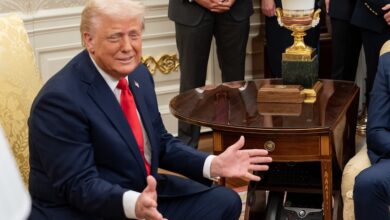Law enforcement credits Trump effort in rescue of 17 children from sex traffickers
Thanks to a Trump administration’s effort to nab child predators, Georgia law enforcement has destroyed a huge child sex-trafficking ring. The sting netted over 80 people in 8 states with 17 children, including babies, saved.
In April 2018, President Donald Trump signed into law a bill dubbed the “Allow States and Victims to Fight Online Sex Trafficking Act of 2017.” The act makes it easier to take legal action against individuals who use websites to facilitate sex trafficking, while also aiding victims to fight back against websites that profit from their exploitation.
One of the biggest fruits of that law is an investigation into the possession and distribution of child pornography covering eight southeastern U.S. states. It has now culminated in the arrest of 82 people and the rescue of 17 child victims, according to the Georgia Bureau of Investigation (GBI).
The four-month-long investigation, dubbed “Operation Southern Impact III,” resulted in three days of investigative actions including “search warrant executions, undercover operations, arrests, and sex offender compliance verification visits.” In total, 171 law enforcement and prosecutorial agencies were involved.
The ages of those arrested range from 20 to 70, the GBI said on May 3. Occupations of arrestees included a “non-profit employee, small business owner, store clerk, mechanic, daycare administrator, youth group leader, former high school band director, freelance photographer, construction worker, and painter.”
As part of the operation, 861 digital devices were previewed and 1,613 digital devices were seized. Included among those devices were 203 mobile phones. The investigation stemmed from cyber tips received from the ICAC Task Force of the National Center for Missing and Exploited Children.
In Georgia alone, 31 people were arrested, mostly for the possession or distribution of child pornography. Investigators said they targeted those distributing “the most violent sexual abuse material involving infants and toddlers” which the bureau itself noted, “is not uncommon.”
“The Georgia ICAC Task Force consistently finds this type of content,” the release stated.
Of those arrested in Georgia, seven traveled for the goal of meeting and having sex with a minor. Investigators say predators often visit chat rooms and sites on the internet to arrange such meetings. The arrested perpetrators targeted both boys and girls.
Four of those arrested in Georgia were also registered sex offenders. One offender had previously been arrested during a similar operation in 2015.
“The dedicated law enforcement professionals that are part of the Georgia ICAC Task Force will not cease searching for those who are producing, trading and collecting this graphic material,” Debbie Garner, special agent in charge of the GBI’s Child Exploitation and Computer Crimes Unit said. “We will continue to work together to find, investigate and prosecute these predators.”
Georgia Attorney General Chris Carr also praised the efforts of those behind the operation and joined others in crediting the previous Republican Congress and President Trump for making it a national priority like never before.
In the same month Trump signed the law, sex-trafficking website Backpage.com—the largest human-trafficking portal in the United States—was taken down by the FBI. Trump has made combating human trafficking a focal point of his administration.
The demand for online sex-trafficking dropped following the shutdown of Backpage, as the operators of smaller sites struggled to stay afloat.
The report by Childsafe.ai—the world’s first artificial intelligence platform for monitoring, graphing, and modeling child-exploitation risk on the web—detailed how the industry has since been fragmented across dozens of websites, all competing fiercely for market share. Web traffic to advertising websites selling sex drew only 5 to 8 percent of the total unique visitors that Backpage drew at its height in 2016.






